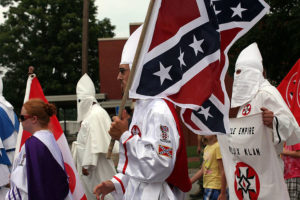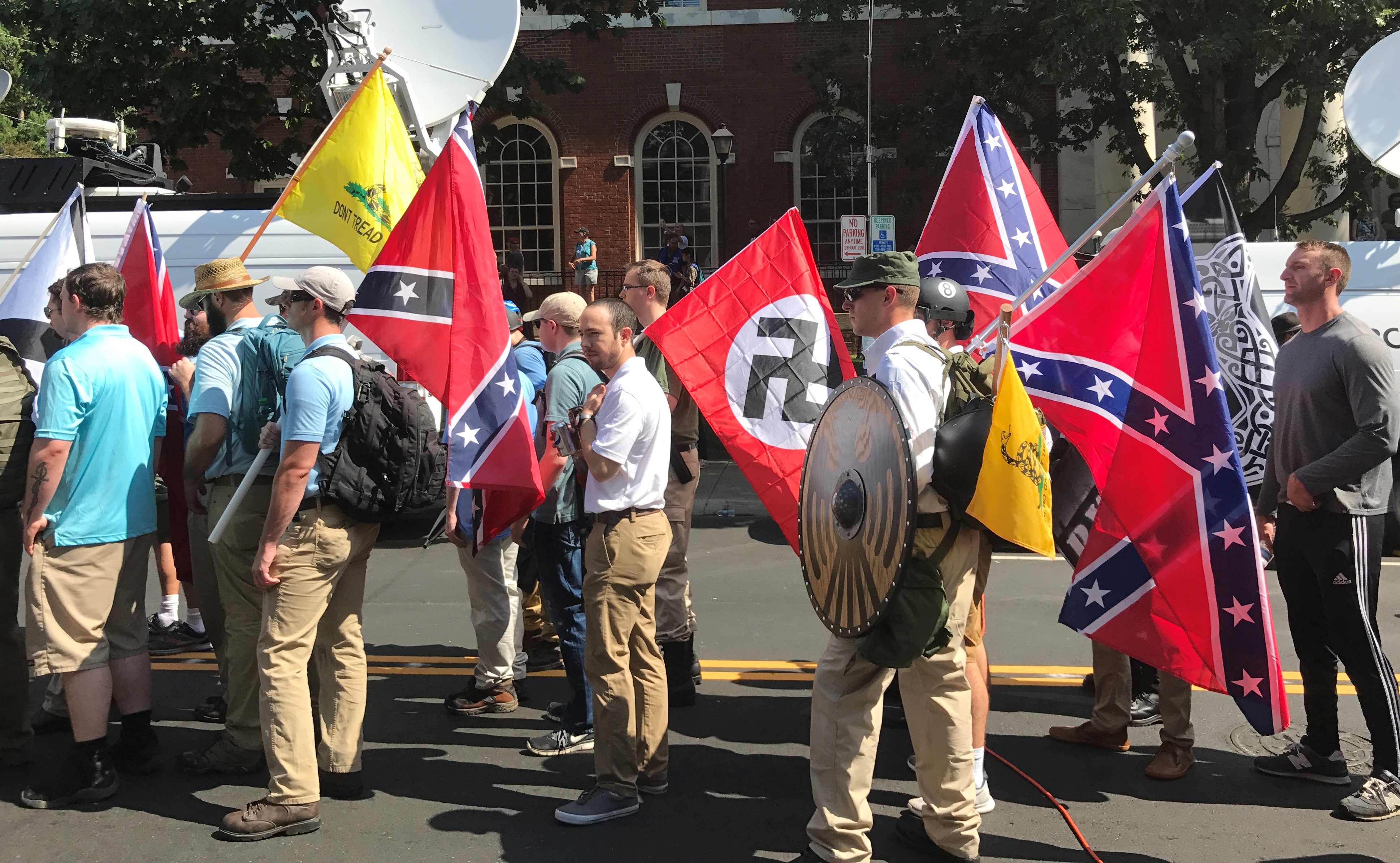The Southern Poverty Law Center has marked, for the fourth year in a row, a growing trend in the rise and growth of hate groups.
According to the center’s annual “Year in Hate and Extremism” report, hate groups have increased by 7 percent in this past year alone, and have increased 30 percent over the past four years.
According to their study there are currently over a thousand hate groups in existence in the United States, a 20-year high mark. The groups considered range from neo-Nazis, neo-confederates, white supremacists and black nationalists.
Though, there is some controversy in the center’s tally, as it labels some conservative church or political groups such as Catholic Family Ministries (listed as a “general hate group”) or Conservative Republicans of Texas (labeled as anti-gay) among the Ku Klux Klan and the American Nazi Party.
Heidi Beirich, director of Southern Poverty Law Center told USA Today that:
“We err on the side of caution,” in regard to deciding to add certain groups and states that they have an exhaustive decision making process before adding a group.
The group itself defines a hate group as an organization that “based on its official statements or principles, the statements of its leaders or its activities — has beliefs or practices that attack or malign an entire class of people typically for their race, religion, ethnicity, sexual orientation or gender identity.”
The most significant growth was among the number of white nationalist organizations, up from 100 in 2017 to 148 in 2018. Beirich, who wrote the report went on to say:
“Much of the energy on the radical right this year was concentrated in the white supremacist milieu. After a lull that followed the violence in Charlottesville, which brought criminal charges and civil suits that temporarily dampened the radical right’s activism and organizing, newer groups gathered momentum.”

While many groups are adding members, the most famous among them, the Ku Klux Klan, is actually seeing a major drop off in membership, as the group is finding it hard to appeal to younger possible members. The report says:
“The KKK has not been able to appeal to younger racists, with its antiquated traditions, odd dress and lack of digital savvy. Younger extremists prefer … polo shirts and khakis to Klan robes.”
Jack McDevitt, director of the Institute on Race and Justice at Northeastern University, an expert on hate groups said that he wasn’t surprised, going on to say:
“It’s depressing, but it’s not surprising, you got a whole bunch of indications we’re seeing a resurgence in hate activity.”
William Johnson, chairman of the American Freedom Party, a New York based group whose website purports that, “core European American population” is being overwhelmed by “tens of millions of legal and illegal immigrants,” is happy about his group’s inclusion.
“I am flattered,” Johnson told USA TODAY. “It really helps elevate our reputation.”
His rationale is that a large amount of the groups included on the list were mainstream groups that either supported President Trump or were linked to Catholicism. He went on to add:
“I don’t know any organization that says I’m a hate group. I’m a love group.”
He went on to say that the American Freedom Party has “nationalists of many stripes and races,” and that “white people are becoming comfortable with being proud of their heritage.”
Richard Foltz
Reporter

